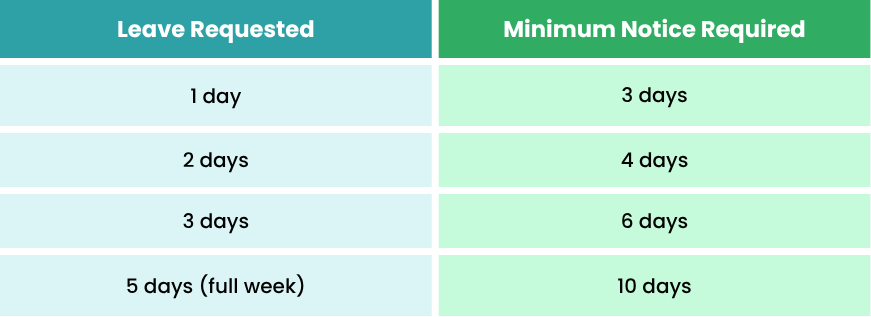
Carers Leave Act
Your rights to time off work for caring responsibilities
What is the Carers Leave Act?
Since 6 April 2024, employees across England, Scotland and Wales have a legal right to take up to one week of unpaid leave each year to provide or arrange care for a dependant with a long-term care need.
This isn't just about taking time off when there's an emergency. It's about giving you the flexibility to balance your caring responsibilities with your work, whether that's attending medical appointments, arranging care services, or simply being there when your loved one needs you.
Am I Elegible for Carers Leave?
You're entitled to Carer's Leave if you're an employee (not self-employed) and you're caring for a dependant with a long-term care need.
Who counts as a dependant?
Key Facts:
This is a legal right from your first day of employment
You can take up to one week (or your equivalent working week) every 12 months
The leave is unpaid, though some employers may choose to pay
You can take it flexibly – as individual days, half-days, or a full week
You don't need to provide medical evidence
You're protected from dismissal or unfair treatment for taking this leave
A dependant can be:
Your spouse, civil partner, or partner
Your child
Your parent
Someone who lives in your household (not a lodger, tenant or boarder)
Someone who reasonably relies on you for care
This is intentionally broad. It recognises that caring relationships come in many forms, and you might be caring for a neighbour, friend, or relative who depends on you.
Examples of when you might use Carer's Leave:
Taking your parent to hospital appointments for their ongoing condition
Arranging home care services for an elderly relative
Supporting your partner during a period of mental health difficulty
Attending meetings about your child's special educational needs
Providing respite for your elderly neighbour's main carer
Helping your relative settle into a new care arrangement
What is a long-term care need?
Your dependant has a long-term care need if they have:
A physical or mental illness or injury that requires care for more than three months
A disability as defined by the Equality Act 2010
Care needs related to old age
Step-by-Step Guide: How to Request Carer's Leave
Check your entitlement
Work out how much leave you can take. If you work full-time, that's one week. If you work part-time, it's your equivalent (for example, if you work three days a week, you can take three days of Carer's Leave).
Give the right amount of notice
You need to give your employer notice. The rule is:
For half a day or one full day: minimum 3 days' notice
For more than one day: notice that's at least double the amount of leave you're requesting
Tell your employer
Speak to your line manager or HR department. You can make your request verbally or in writing (check your workplace policy). You need to:
Say which dates you want to take off
Confirm that you're taking Carer's Leave
State that you're eligible for this leave
Important: Your employer cannot ask you to provide evidence of your dependant's condition or proof that you're a carer. You don't need medical certificates or documentation.
Wait for confirmation
Your employer must respond to your request. They cannot refuse it, but they can postpone it if your absence would cause serious disruption that cannot be reasonably managed.
If they need to postpone:
They must agree a new date within one month of your original request
They must explain in writing within 7 days why they need to delay it
This written explanation must reach you before your requested start date
Take your leave
During your Carer's Leave, your employment continues. You keep all your normal terms and conditions except wages (unless your employer chooses to pay you). Your annual leave continues to build up, and any other benefits remain in place.
Your Rights and Protections
You are protected by law
When you take Carer's Leave, you have important legal protections:
Right to return: You're entitled to return to the same job after your leave
Protection from dismissal: Being dismissed for taking or requesting Carer's Leave is automatically unfair
Protection from detriment: Your employer cannot treat you unfairly or disadvantage you for taking this leave
Continuation of employment: Your period of continuous employment is unaffected
What if something goes wrong?
If your employer unreasonably prevents you from taking Carer's Leave, refuses your request without valid reason, or treats you unfairly because of it, you can bring a claim to an employment tribunal.
If you're experiencing difficulties, please get in touch with us at Cornwall Carers Service. We can provide guidance and support, and help you understand your options.
Frequently Asked Questions
Can I take Carer's Leave for more than one person?
You're entitled to one week per year regardless of how many people you care for. However, you can use that week to care for multiple dependants if needed.
What if I need an emergency day off and can't give notice?
If you need time off at very short notice for an unexpected caring emergency, you should ask about "time off for dependants" instead. This is a different right that allows emergency time off, though it's typically for shorter periods.
Is Carer's Leave the same as my normal holiday?
No, Carer's Leave is separate from your annual holiday entitlement. You don't use up your holiday days when taking Carer's Leave.
Can I take Carer's Leave in half-day blocks?
Yes, you can take leave in half-day or full-day blocks. This gives you flexibility to attend appointments or provide care when needed without taking full days off.
Does my employer have to pay me?
Carer's Leave is unpaid by law, but some employers choose to pay their staff during this leave. Check your employment contract or workplace policy, or ask your HR department.
What if I need more than one week?
If you need more time, you might be able to use other types of leave such as annual holiday, parental leave (if you're a parent), or unpaid leave if your employer agrees. It's worth having an open conversation with your employer about what support they can offer.
Do I need to explain exactly how I'll be using the leave?
No, the law intentionally doesn't require you to detail your caring activities. "Providing or arranging care" is deliberately broad to respect your privacy and recognise that caring involves many different tasks.
Need Support or Have Questions?
Cornwall Carers Service is here to support you. Whether you need help understanding your rights, want to discuss your caring situation, or just need someone to talk to, we're here.
Contact us:
Phone: 01736 756655
Remember, you don't have to manage caring and work on your own. We're here to help you find the right balance and get the support you're entitled to.

The Carers Leave Act
Complete guide to your statutory right to one week of unpaid leave per year. Learn who qualifies, how to request leave, and what protections you have.
Explore More of Your Rights and Support
Register as a Carer with your GP Practice
If you're caring for someone – whether it's a partner, family member, friend, or neighbour – you have the right to be identified as a carer by your GP practice
Flexible Working Rights
Understand your right to request flexible working arrangements from day one. Explore different types of flexibility and how to make a successful request.
Statutory & Contractual Rights
Detailed breakdown of your legal rights as a working carer, including protections against discrimination and unfair dismissal.
Time Off For Dependants
Know your rights to take time off for emergencies involving dependants. Learn what qualifies as an emergency and how much time you can take.
Get a Carers Assessment
If you're caring for someone in Cornwall, whether that's a parent, partner, child, friend, or neighbour, you might not think of yourself as a carer. But you may be entitled to support.



